1974 Marathon man like no other
Outsider: An Old Man, a Mountain and the Search for a Hidden Past
by Brett Popplewell
Toronto: Harper Collins, 2023
$25.99 / 9781443457859
Reviewed by Daniel Gawthrop
*
 British Columbia has long been a magnet for eccentric new settlers with mysterious backgrounds who come here seeking to reinvent themselves. Thanks to an investigative journalist from Ontario, we now have another whose fascinating back story has been captured for the record: Dag Aabye, a ruggedly athletic, 82-year-old mountain man from Norway who lives in a school bus on a forested hillside near SilverStar outside Vernon—a man who, until he was 75, competed as a long-distance runner in the brutal, 125-kilometre Canadian Death Race.
British Columbia has long been a magnet for eccentric new settlers with mysterious backgrounds who come here seeking to reinvent themselves. Thanks to an investigative journalist from Ontario, we now have another whose fascinating back story has been captured for the record: Dag Aabye, a ruggedly athletic, 82-year-old mountain man from Norway who lives in a school bus on a forested hillside near SilverStar outside Vernon—a man who, until he was 75, competed as a long-distance runner in the brutal, 125-kilometre Canadian Death Race.
The author of this story is a Carleton University journalism professor and feature writer whose work has appeared everywhere from Bloomberg Business Week and The Globe and Mail to Sportsnet, Maclean’s, and The Walrus. Brett Popplewell knows a good story when he sees one, and the sensational aspects of Dag Aabye’s life must have been irresistible. For Aabye, a former stunt man who enjoyed brief infamy as an extreme skier after appearing as an extra in the James Bond film Goldfinger, was believed to have been a product of Nazi-occupied Norway’s Lebensborn program: the making of perfect Aryan babies for the glory of the Third Reich.

To uncover the truth about Aabye’s origins, Popplewell goes the distance with his subject over six years of research and writing. He first learns of him after a colleague describes Aabye’s participation in the Death Race, a gruelling trek through the Canadian Rockies that Aabye first completed at age 62, making him the oldest ultramarathon runner in the world. He is described to the author as a “white-haired ‘Jesus figure’…a reclusive super athlete who spent his days training on hand-cut trails no one else knew existed.” He’s far “deeper” than Chris McCandless, the idealistic adventurer of Jon Krakauer’s Into the Wild, who travelled the United States seeking true meaning in life before ending up alone in the Alaskan wilderness, dying in an abandoned bus. “McCandless was a young innocent,” Popplewell is told. “Dag is the old guru.”
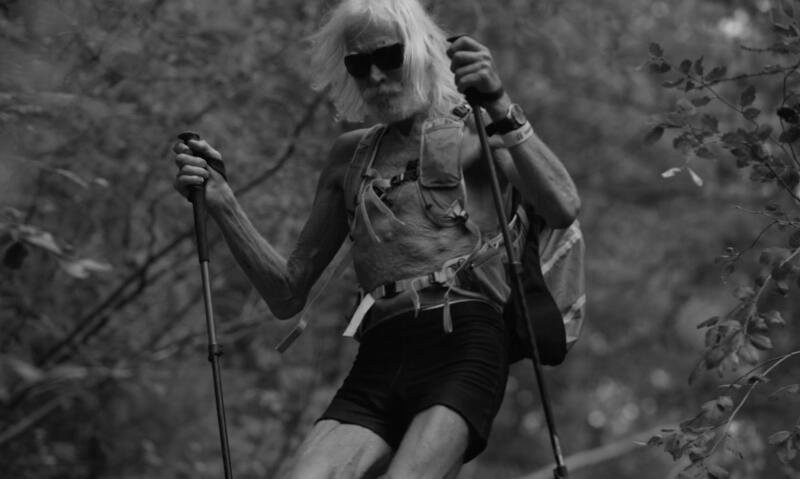
The author secures his first meeting with Aabye at “a grungy sports bar attached to a gym,” downhill from the old man’s forest lair. The fact that Aabye is an occasional visitor to this bar proves he’s not truly a hermit despite living off the grid with no electricity, phone, or access to the Internet. (He also keeps abreast of world events, the author learns, by listening to the news on a portable radio.) Gaining his trust after accompanying him on a tour of his 26-kilometre network of training trails, Popplewell becomes part of the story. Relying on his research savvy—and an indefatigable travel budget—he pursues every lead, interviewing anyone who has ever known the man in a bid to discover his origins. The result is much more than biography.
*
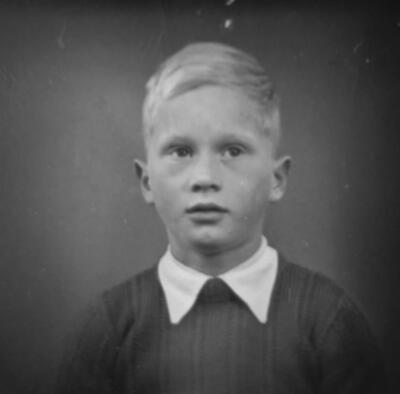
In excavating Aabye’s past, Outsider explores the Norwegian tradition of hereditary farms—how most large tracts of land in the country are owned by single families and passed down to succeeding generations. As the only child of adoptive parents, Dag is expected to work on the farm, take good care of it and, ultimately, inherit it—a prospect that becomes increasingly oppressive the older he gets, thanks to his unhappy home life. (The family briefly escapes to Argentina four years after the war’s end when Dag, at age eight, suffers the consequences of his father’s Nazi sympathies. When they return two years later, the death threats have stopped but the manor at Hovlandsmoen is haunted by bad memories.)
Eager to escape his mother Helga’s emotional cruelty and his father Georg’s expectations, young Dag frequently runs away from home. His nomadic existence begins at eighteen with a placement in a prestigious gymnastics school. From there it’s on to the Norwegian Army, followed by his first job as a ski instructor in the Scottish Highlands. He then makes his way to London, where a talent agency discovers him. After working as a model, he lands that role as an extra in Goldfinger, of which little is said. By this point in Outsider’s captivating narrative, Aabye has already been gripped by the vagabond life, the joy of travel that takes him away from unpleasant memories. The author singles out Norwegian adventurers of the past, including Fridtjof Nansen and Roald Amundsen, as formative influences.
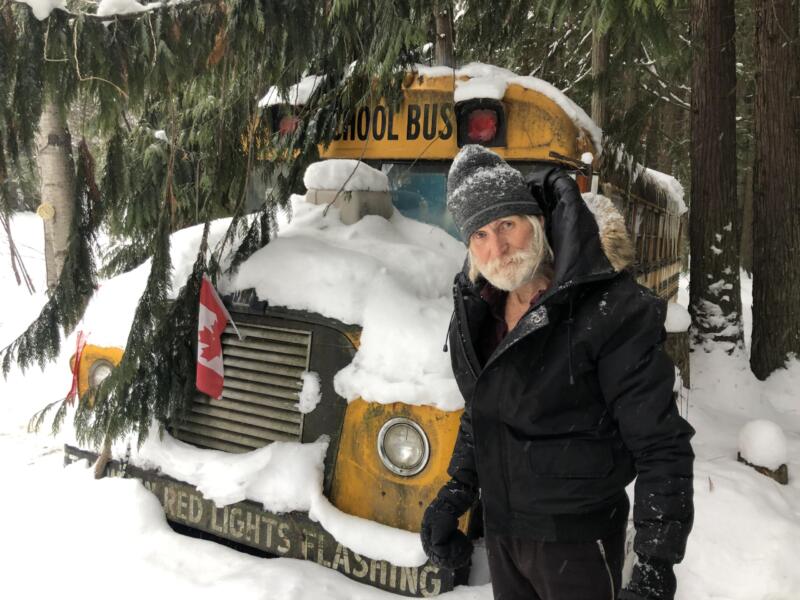
After becoming known throughout Europe, and later Aspen and Vail, as a skiing daredevil, Aabye makes his way to the Canadian west coast where he becomes part of a promotional campaign for a brand-new skiing resort. His acrobatic skills, his ability to create new black diamond trails and explore parts of the mountain no other skier would attempt, draws attention to Whistler, building its reputation as a desirable ski destination. Popplewell makes a good case for Aabye’s critical role in Whistler’s origin story.
The author’s passages on the socio-economics of skiing, the evolution of the sport from its elite status to a more accessible upper middle class recreational pursuit, provide telling context for Aabye’s life trajectory. Reaching his prime as a skier during a period when the money is rolling in and new ski resorts are sprouting up everywhere, Aabye reaches his own personal peak with a near-death experience while becoming the first person to ski down The Lions, those dramatic twin peaks of vertical rock that stare out from the North Shore Mountains.
The stunt, captured on film from a helicopter by a Vancouver Sun photographer just as the crust of snow surrounding Aabye began to collapse, is recounted in Outsider with riveting detail. Despite widespread criticism for its recklessness (U.S. magazines call it one of the stupidest hotdogging stunts ever), Olympian alpine skier Nancy Greene dubs Aabye the world’s first extreme skier. He could have dined out on that for years, turning his infamy into a marketing opportunity. But as Outsider reveals, he was never motivated by fame or money.
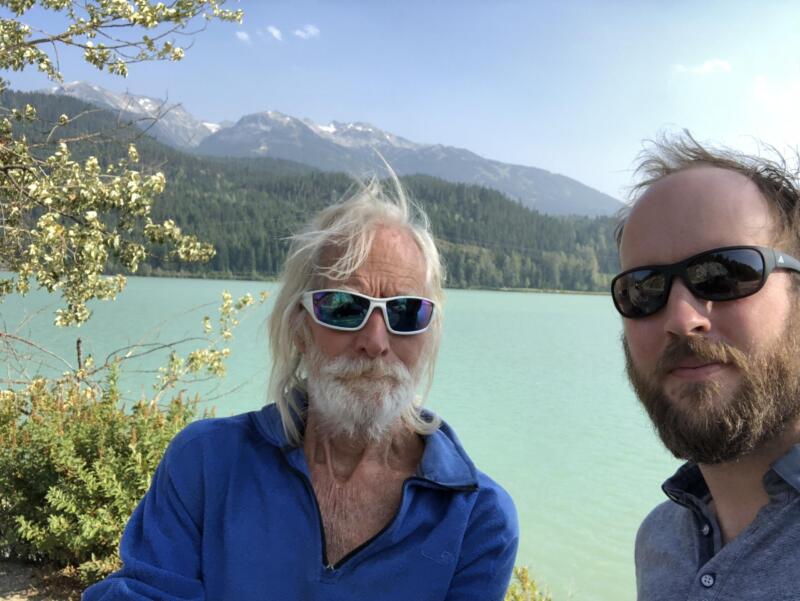
*
Dag Aabye was a lost soul from the moment he realized he’d been adopted, forever marked by the traumas of early childhood in war time and the fact he was prevented from learning the identities of both his birth parents. Popplewell recounts how sadly the years unfolded for Aabye following the glory days of his skiing fame: how he got married, settled down with kids, spent 18 years working in the forest industry out of Squamish, the Sunshine Coast, Vancouver Island and Haida Gwaii, and experienced a series of misfortunes that led to alcohol abuse, marriage breakdown, and the estrangement from his own children that led to his life of sylvan solitude.
Sporadic contact with his adopted mother, in which she repeats her plea for him to return home and take over Hovlandsmoen, only reinforces Aabye’s decision to leave Norway. Stuck in an old-world European vision of blood narrative, Helga cannot comprehend why stewardship of the family farm would be the last thing someone like Dag would ever want. It’s clear that she never really knew her son and that there had been little warmth, if any, in their relationship. (He never forgives her for calling him, as a young child, the son of a Nazi whore.) As Popplewell gets closer to the truth—which ultimately requires getting the funds and paperwork necessary to enable Aabye’s return to Norway—the reader is moved by the author’s abandonment of all pretense of journalistic objectivity. For his interest in Aabye’s life has exceeded that of the man’s own children; the author, for his part, is moved by his own dying mother’s respect for Dag’s belief in getting the most out of life while it’s still possible.
There’s an appealing mixture of pathos and joy in Outsider. Despite our lamentable Western tradition of disposable heroes—people are celebrated while they’re “hot”, forgotten when they’re not—human kindness is present throughout Aabye’s life. Many people seeing his plight offer him ways out of the financial and domestic ruts into which he has landed. This is likely because his positive thinking philosophy is so grounded in humility. While much of his homespun wisdom is the stuff of cliché (“You can’t begin to understand others if you don’t yet understand yourself.”), Aabye earns the respect of others by refusing to see himself as a victim. He doesn’t whine, seek pity, or complain about his challenges. And he never says a bad word about anyone else. Along with his anti-ageist aesthetic and lifestyle, his minimal eco-footprint, there is much to learn from his example.
And that—along with the author’s crisp, fast-paced narrative—is what makes this such a deeply moving page-turner of a book. Outsider is a fascinating exploration of the meaning of human accomplishment and survival that causes us to question our own assumptions about ageing, belonging, and solitude.
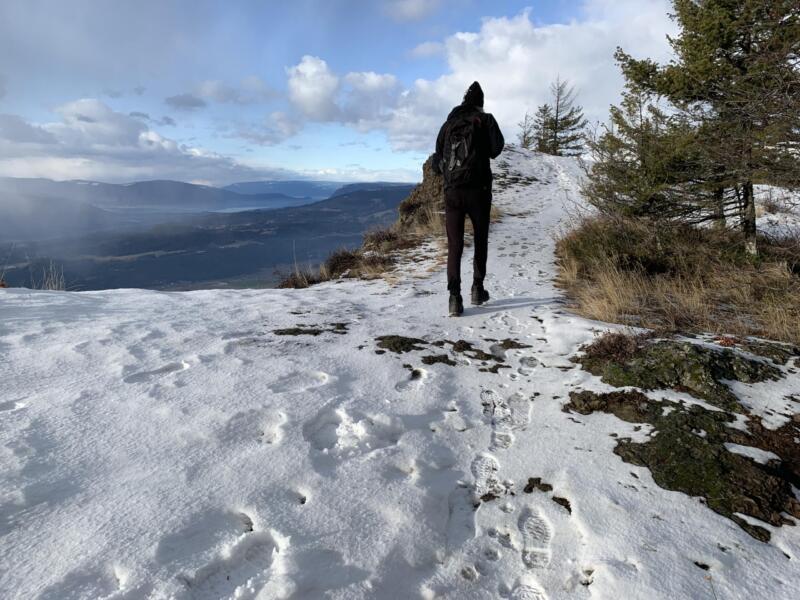
*

Daniel Gawthrop‘s debut novel, Double Karma, was published this spring by Cormorant Books. He’s also the author of five non-fiction titles including The Rice Queen Diaries, a memoir about interracial attraction. Visit his website here. [Editor’s note: Daniel Gawthrop has recently reviewed books by Alex Kazemi, Charlotte Gill, Eden Robinson, Tsering Yangzom Lama, Alan Haig-Brown, Anthony Varesi for BCR.]
*
The British Columbia Review
Interim Editors, 2023-24: Trevor Marc Hughes (non-fiction), Brett Josef Grubisic (fiction)
Publisher: Richard Mackie
Formerly The Ormsby Review, The British Columbia Review is an on-line book review and journal service for BC writers and readers. The Advisory Board now consists of Jean Barman, Wade Davis, Robin Fisher, Barry Gough, Hugh Johnston, Kathy Mezei, Patricia Roy, Maria Tippett, and Graeme Wynn. Provincial Government Patron (since September 2018): Creative BC. Honorary Patron: Yosef Wosk. Scholarly Patron: SFU Graduate Liberal Studies. The British Columbia Review was founded in 2016 by Richard Mackie and Alan Twigg.
“Only connect.” – E.M. Forster
2 comments on “1974 Marathon man like no other”